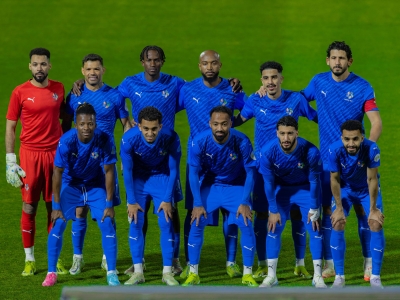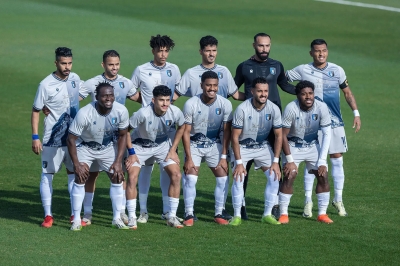
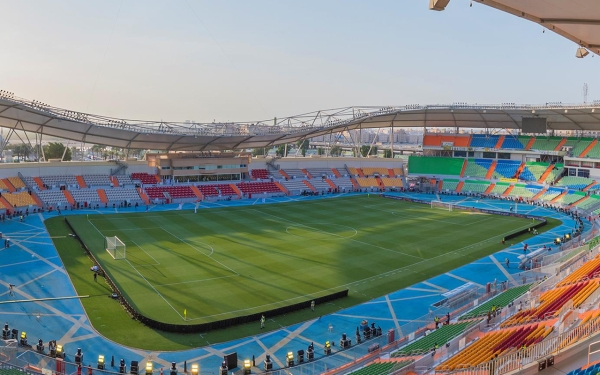
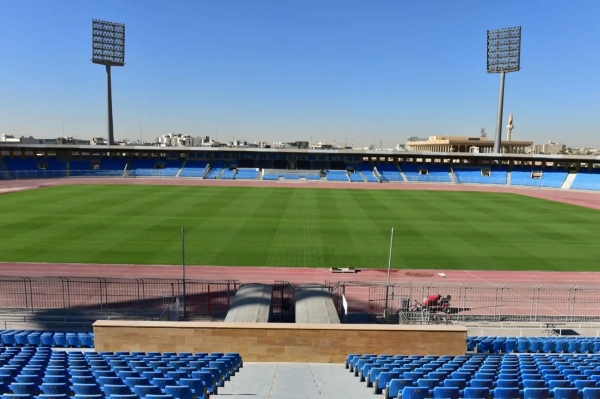
Football Stadiums in the Kingdom of Saudi Arabia are designated venues for playing football, hosting official and friendly matches, and crowning champions in Saudi competitions. They also serve as sites for inaugurating tournaments and sporting events. Additionally, these stadiums accommodate other sports competitions, including athletics in its various forms, global boxing and wrestling matches, rugby—a sport similar to football—and car races. Moreover, they host concerts, music festivals, National Day, Founding Day, and Flag Day celebrations. Saudi stadiums also house military parades and ceremonies for military course graduations, whether for soldiers or officers.
The importance of football stadiums in Saudi Arabia
Football stadiums are considered the cultural manifestation of sports, receiving significant attention in planning, construction, and development, especially concerning infrastructure. Saudi Vision 2030 aims for the Kingdom to take the lead in all fields internationally, particularly in sports, as it prepares to host the 2027 AFC Asian Cup and the 2034 FIFA World Cup. The Kingdom has finalized all details and requirements for its bid to host the 2034 FIFA World Cup, preparing to submit it to FIFA in Paris through the official delegation. On July 29, 2024, His Royal Highness Crown Prince Mohammed bin Salman bin Abdulaziz Al Saud, Prime Minister, endorsed the Kingdom's comprehensive preparations for the 2034 World Cup hosting bid.
The Kingdom announced the preparation of ten stadiums in three cities: Riyadh, Jeddah, and Dammam, including three new stadiums and seven existing ones that will be revamped and equipped. Additionally, the Ministry of Sport announced the renaming of three stadiums as "Sports Cities".
The beginnings of football stadiums in Saudi Arabia
The foundation of stadiums in the Kingdom began with the construction of al-Sabban Stadium in the south of Jeddah Governorate in 1950. The second football stadium, al-Sayegh Stadium, was built later, becoming the first stadium established in Riyadh City in the late 1950s. The third stadium was constructed in the capital, Riyadh, in 1970, and was named al-Malaz Youth Stadium, locally known as al-Malaz Stadium, now called Prince Faisal Bin Fahd Sports City Stadium.
Although the construction of al-Malaz Stadium coincided with the establishment of two other stadiums, Prince Mohammed Bin Fahd Stadium in Dammam, the Eastern Province, and Prince Abdullah al-Faisal Sports City Stadium in Jeddah, Makkah al-Mukarramah Province, it marked a turning point in the history of Saudi stadiums. In addition to its popularity in local culture, it was the first stadium in the Middle East to implement the "Hybrid Grass" system, utilizing a mix of natural and artificial grass on its field, with 80 percent natural grass and 20 percent synthetic grass, measuring forty-five mm in length and 380 um in thickness. At that time, al-Malaz Stadium was only suitable for daytime play, as it lacked lighting, an electronic scoreboard, and the upper tier of the second-grade seating. In 1974, the three stadiums in the capital, Riyadh, Jeddah Governorate, and Dammam Governorate were illuminated.
Local and international football stadiums
Most stadiums and sports cities in the Kingdom are named after kings and princes, such as King Fahd International Stadium, Prince Faisal Bin Fahd Bin Abdulaziz Sports City Stadium in Riyadh, King Abdullah Sports City Stadium in Jeddah, Prince Abdullah al-Faisal Stadium in Jeddah, and Prince Mohammed Bin Fahd Stadium in Dammam. Some stadiums also receive secondary names describing their structure, like Durrat (The Pearl) and al-Jawhara al-Moshe'ah (The Shining Jewel).
Some football stadiums in the Kingdom fall under the mandate of educational institutions, particularly Saudi universities. For example, King Saud University Stadium, known as "Mrsool Park" in the capital, Riyadh, hosted the 2019 Italian Super Cup final. Similarly, Dammam University Stadium is classified by FIFA as one of the best two-star stadiums in the world.
Prince Faisal Bin Fahd Sports City Stadium
The Prince Faisal Bin Fahd Stadium was officially inaugurated during the opening ceremony of the second Arabian Gulf Cup in Riyadh in 1972. It covers an area of 120,000 m with a capacity of 22,188 seats, and the stadium hosts the most popular clubs in Riyadh, namely: al-Hilal SFC, al-Nassr FC, and al-Shabab FC. Throughout its history, the stadium has hosted high-profile sporting events such as the Arabian Gulf Cup, the King Cup final, and the Saudi Football Association Cup final. It is also among the first Saudi stadiums to issue electronic tickets, starting in the twenty-second round of the Zain Professional League in 2012.
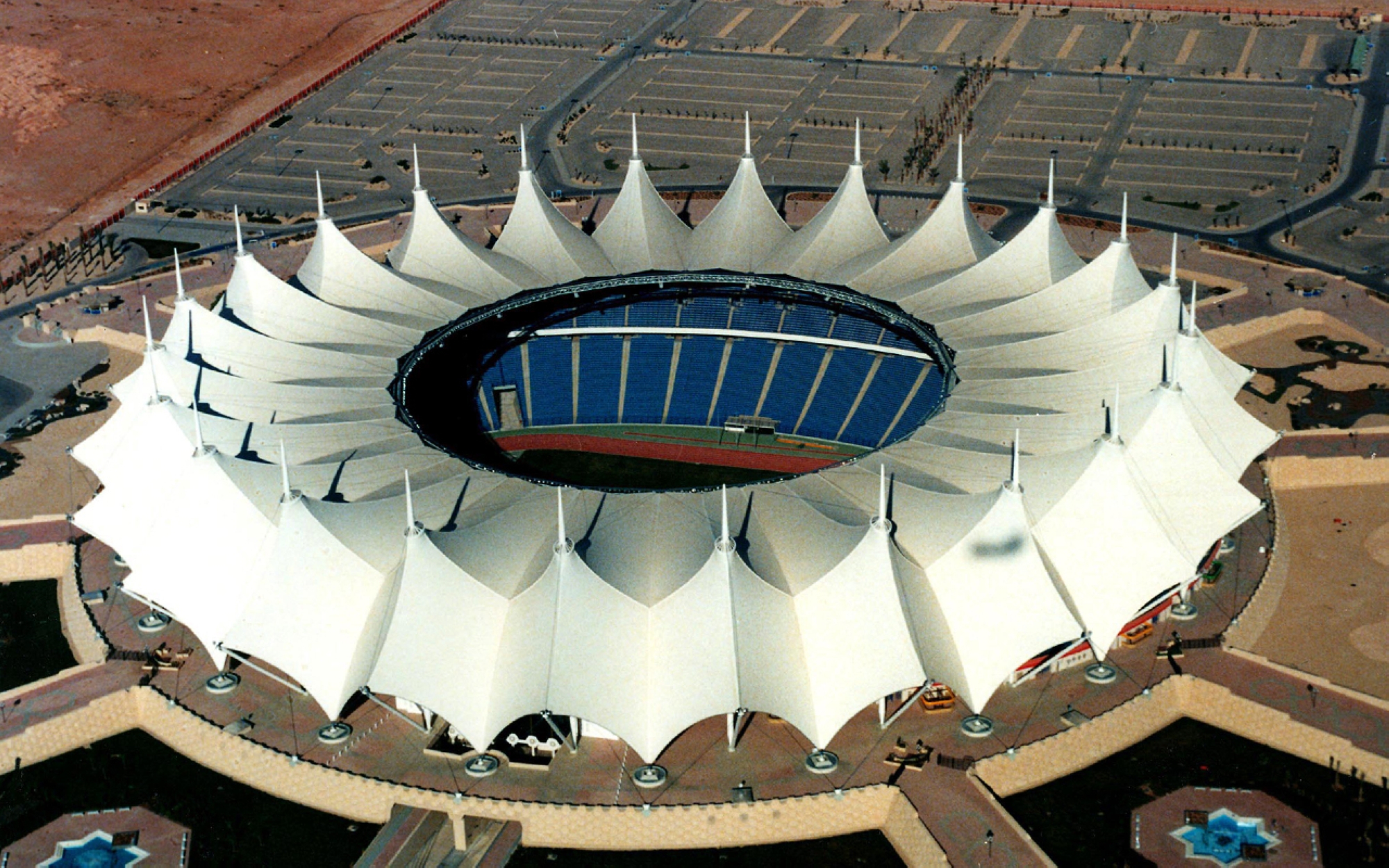
Prince Abdullah al-Faisal Sports City Stadium
Prince Abdullah al-Faisal Sports City Stadium was inaugurated in 1973 and is located in the southeast of Jeddah Governorate, with a seating capacity of 22,749. The stadium's pitch utilizes a combination of natural and artificial grass. In 2023, the stadium hosted matches of the 2023 FIFA Club World Cup.
In 2023, the sports city underwent a development project over an area of sixty thousand m. The upgrades included the press conference hall, media areas, players' entrances, and the dugouts. More than 22,726 seats were replaced, surveillance systems were upgraded, and the overall appearance was enhanced with artificial grass covering an area of 16,000 m. Additionally, the stadium's fan area was expanded to accommodate over 6,500 spectators.
The sports city also houses an indoor hall used for various events, cultural gatherings, and tourism conferences. In 2011, the indoor hall hosted the closing ceremony of Makkah Youth Forum's event, "Hand in Hand to Build the Human," which took place in Jeddah Governorate.
Prince Mohammed Bin Fahd Stadium
Prince Mohammed Bin Fahd Stadium, located in the southeast of Dammam in the Eastern Province, was established in 1973 on a site spanning 105,929.06 m. The facility includes a main stadium, a secondary pitch, and a running track, with a seating capacity of approximately 22,042.
The stadium is one of four, alongside King Fahd Sports City Stadium, Prince Faisal Bin Fahd Sports City Stadium, and Prince Saud Bin Jalawi Sports City Stadium, which will be rebuilt and developed to host the 2027 AFC Asian Cup. The seating capacity will be increased to thirty thousand.
King Fahd Sports City Stadium
King Fahd Sports City Stadium, known as "The Pearl of Stadiums", is located in the eastern part of the capital, Riyadh, and is the largest sports stadium in the Kingdom, given the sports city's area of five hundred thousand m. Built in 1988, the stadium has a seating capacity of 56,453. The stadium has one the largest roofs in the world, with twenty-four columns supporting a massive canopy that shields the seats from the sun's rays.
The first match held at King Fahd Sports City Stadium was a friendly between the Saudi national team and Austria’s Rapid Team, played as part of the Saudi team's preparations for the ninth Arabian Gulf Cup, which ended in a 1-0 victory for the Kingdom. The first official match was between the Kingdom and Oman during the opening of the ninth Arabian Gulf Cup, where the Kingdom won 2-0.
Unlike other multi-purpose sports stadiums, King Fahd Sports City Stadium is notable for hosting the first international music event at a Saudi stadium: the BTS concert, which marked the band's first performance in the Middle East. The stadium is also featured in its digital form in the FIFA video game series, starting with the thirteenth edition, coinciding with the inclusion of the Saudi Professional League in the game.
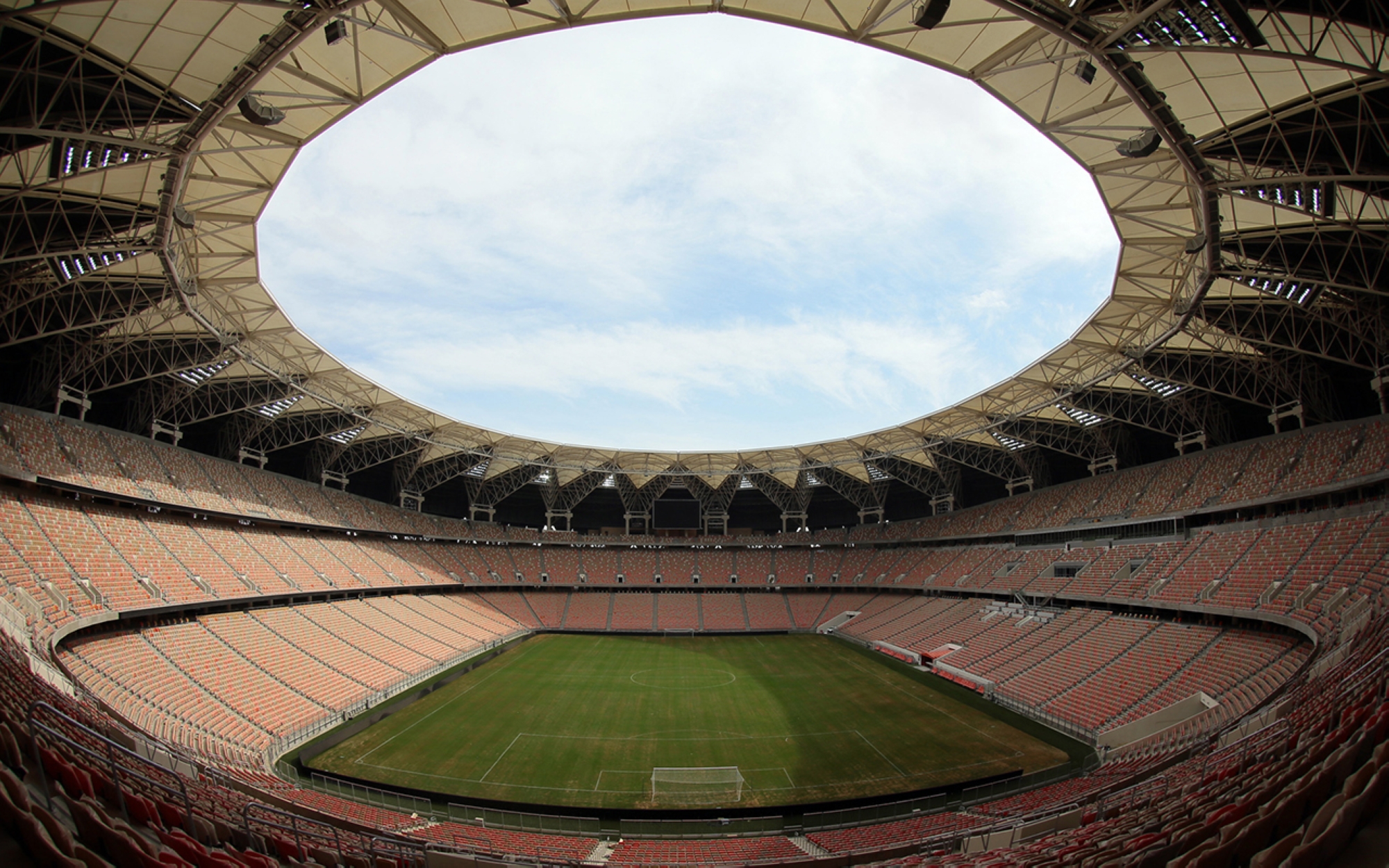
King Abdullah Sports City Stadium
Nicknamed "The Shining Jewel," King Abdullah Sports City Stadium is part of the King Abdullah Sports City Complex located in the north of Jeddah Governorate. Saudi Aramco oversaw its design and construction, which was completed in just two years. The stadium is the largest in Makkah al-Mukarramah Province, with a seating capacity of 64,610.
The stadium has hosted several international tournaments, including the 2020 Spanish Super Cup, the first of its kind in Asia, featuring Real Madrid, one of the world's most popular football clubs.
The sports city includes smaller sports facilities surrounding the main stadium, and its internal arenas host athletics events and local sports competitions. The stadium was officially inaugurated in 2014 under the patronage of King Abdullah Bin Abdulaziz Al Saud, during the final match of the 2014 King's Cup between al-Ahli FC and al-Shabab FC.
Prince Saud Bin Jalawi Sports City Stadium
Established in 1983, Prince Saud Bin Jalawi Sports City Stadium is located in al-Rakah Neighborhood of al-Khobar Governorate in the Eastern Province. It is also known as "al-Rakah Stadium" and has a seating capacity of approximately 11,358. The sports city spans an area of 360,000 m.
Apart from the main stadium, the sports city includes eight outdoor fields, sports halls, a swimming pool, a squash court, youth hostels, and a gymnastics hall.
Prince Mohammed Bin Salman Stadium in Qiddiya
In 2024, the board of directors of Qiddiya Investment Company announced the launch of Prince Mohammed Bin Salman Stadium, which will be the main stadium in Qiddiya City. This stadium will be equipped with technologies and features that make it a multi-purpose venue capable of hosting major sports, entertainment, and cultural events in the Kingdom.
The stadium will be centrally located in Qiddiya City, perched atop one of the Tuwayq Mountain peaks at an elevation of two hundred m. It is situated about forty minutes from Riyadh City and is one of the proposed venues for hosting matches in the 2034 FIFA World Cup. The stadium’s design includes technological advancements that provide fans with an immersive experience, making them feel as if they are at the center of the action.
The stadium is planned to become the home ground for both al-Nassr FC and al-Hilal SFC and will host several major local and international football competitions. Its innovative design allows for the venue to be transformed within hours to accommodate various other events, such as rugby matches, boxing, mixed martial arts, e-sports tournaments, and grand concerts and exhibitions.
Related quizzes
Related articles
